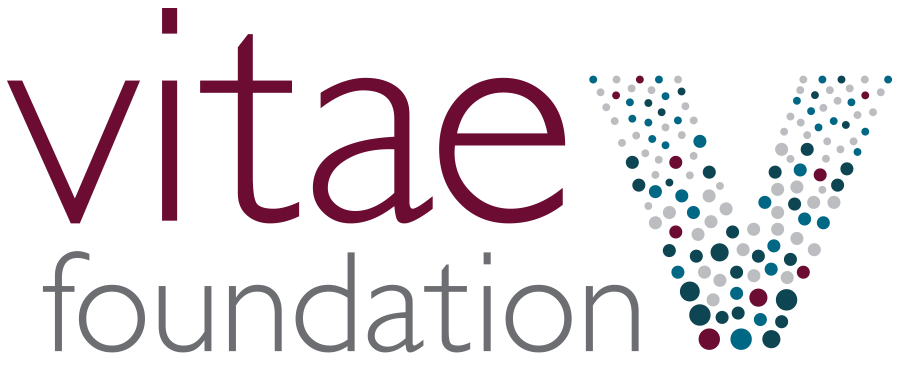Abortion doesn’t take a holiday. For most states, it also doesn’t abide by personal distancing and shelter-in-place mandates. That’s why, now more than ever, it is crucial the Vitae Foundation’s Right Brain research-fueled messaging strategies remain active. As the potential for an increase in unintended pregnancies looms on the horizon, our ads – funded by generous donors from around the country – are stepping up in a big way to help us connect more abortion-determined women with Pregnancy Help Centers (PHCs) across the nation.
“We’re not satisfied with simply maintaining. We want to ensure that we continue to explore new and cutting-edge methods of reaching her first. That’s why we’ve sought out DDI Mobile of St. Louis, Missouri, to create two new types of campaigns for Vitae: geofencing and retargeting,” according to Vitae’s Director of Marketing & Research Application Kenney Newville. The campaign will target the Kansas City market.
You may have heard the term geofencing recently, but why? Geofencing is becoming a very popular way to get messages in front of prospective clients. Think of it as a billboard, but for your smartphone. It’s a billboard that goes with you everywhere you go.
Geofencing campaigns use the Global Positioning System (GPS) satellite network to create virtual boundaries around select locations. Once a person enters one of the locations, the apps and websites viewed on their smartphone will display the intended ads for that area. For example, we could create a geofencing campaign that would serve a woman an ad for a pregnancy center if they are standing in the pregnancy test aisle of their local supermarket or pharmacy. It’s that precise.
While geofencing could be thought of as a “cold call,” retargeting is the follow up call. Retargeting campaigns allow advertisers to display ads on smartphone apps and websites for other sites that the user has visited but then left. Have you ever wondered why you’re getting ads on your phone for random Amazon items? Perhaps you’ve been shopping on the online retail giant’s site and left a few items in your cart. Retargeting can be used to remind a woman experiencing an unplanned pregnancy that she has options at the local PHC, whose website she visited late last night.
This technology certainly has potential, but you may be asking yourself: why DDI Mobile? It’s the same question Newville asked prior to selecting them to manage the project.
“Before we work with any outside group, whether its advertising, research or anything else, we need to be sure they not only share the mission, but they will also respect the research. When I first met with Kayla and Kelsey, I could tell they were mission-driven and very excited about the Right Brain research Vitae has developed and used for nearly 30 years,” Newville said.
DDI’s team is more than just motivated by the cause, it’s backed by years of digital advertising with brands such as Schlafly, Saint Louis University and Burger King.
“People are spending more time on their connected devices than ever before. This makes it so important to reach women on their smartphones, tablets, desktops and smart TVs they use most to deliver a message,” stated DDI’s Digital Strategist Kelsey Brewer. “Our location data allows for precise profiling and targeting of the audience, as well as key insights and metrics that will help design current and future campaigns.”
It is with Vitae’s Right Brain research, DDI Mobile’s experience and technical knowledge, and a generous donor from Kansas that we can bring these two potentially groundbreaking campaigns to Advice & Aid in Overland Park. Advice & Aid and the Vitae Foundation have collaborated before, and they are no stranger to the messaging strategies Vitae employs.
Advice & Aid is also one of the few centers that offer the abortion pill reversal – a miracle protocol that can reverse the effects of Mifepristone or RU-486. They are uniquely equipped to help women in the Kansas City market with their pregnancy decisions. It’s also providential they are located across the street from a very large Planned Parenthood facility which refuses to close during the COVID-19 pandemic. Therefore, Advice & Aid is open, but dealing with clients per CDC guidelines.
“I love how God works! After trying Geofencing for a while, we at Advice & Aid decided to just take a break from it. My team and I continued to wrestle on when we would do it again. On the day a few of us were having email conversations about this very subject, I received a call from Vitae explaining the donor gift they had received for Geofencing and asked if we would be interested in being the recipients of this grant. This call couldn’t have come at a more precise moment. It was indeed a God moment!” Ruth Tisdale, Advice & Aid’s executive director, stated.
While the campaign is only two weeks old, we’re already seeing impressive numbers. During the first two weeks, the ads from the geotargeting and retargeting campaigns were seen over 121,000 times. That means that each day the ads were seen around 8,600 times! Time will determine how many of those who viewed the ads are abortion-determined or scheduled and kept an appointment with Advice & Aid. Again, time will tell, but rest assured we’ll be keeping you informed as we study the data and share the stories of lives saved.
